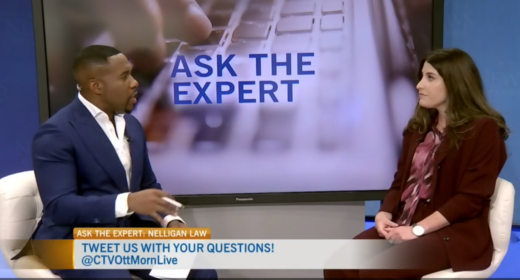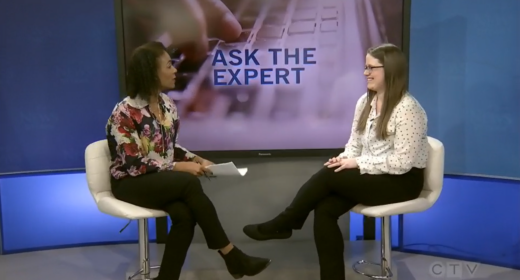The issue of what to do about the family cottage or, in fact, about any type of second property other than your principal residence, often comes up in family discussions. It could be a cottage, a hunting camp, vacant land or even an investment property. The issue is: what do you do with this asset at or before your death if you have other family members who use it, enjoy it or just want to keep it in the family?
A simple answer is to leave it in your Will to those who enjoy it most. But in many cases, this second property may be a large part of your estate and leaving it to some of the family may mean an inequality in estate sharing. It may also have a large accrued capital gain that will have to be paid by your estate. Maybe all of the children expect to share it but all are not financially able to contribute equally to the property's upkeep (or even get along with each other).
There are no absolute or correct answers to this problem. In fact, there are probably as many answers as there are families dealing with the issue of intergenerational second property transfers.
In the 40 years that I have been practicing law, the only thing I have been able to advise with certainty is to address the issue while you are alive. It will be a lot easier than the fighting or hard feelings that will occur if you simply ignore the problem.
A typical situation that arises involves a family and their cottage property. The parents have three children: one who lives far away but has the financial resources to look after and even improve the property; a second child who lives closer and has sufficient resources to take over the property but is not that interested in it; and, a third child who uses the property every chance he/she gets but is not financially able to take over any part of the maintenance or the responsibility of the property.
A fact of life is that the Income Tax Act states that you are deemed to dispose of all of your property at your death. Capital gains arise from this deemed disposition and income taxes are payable as a result. If the property is owned jointly with a spouse or the spouse is left the property by Will, then the capital gains and taxes will be deferred until the second spouse dies or otherwise disposes of the property.
Whether one likes it or not, capital gains will arise at some time on the disposition of any property and taxes will be payable (again, subject to the zero rated gains on a principal residence and transfers to spouses).
What options are there to control or organize the use and ownership of a second property that will best suit the personal needs of you and your family? There are several: transfer the property to a trust for the benefit of the second and later generations; transfer the property to a corporation; transfer the property to one or more of the children or grandchildren beforehand or leave it to them in your Will; or, do nothing – but at least decide to do nothing!
Transfer to a trust
A trust (called an inter vivos trust because it is established by a person while he/she is alive rather than a testamentary trust which is established by Will when a person dies) is established (hopefully with the assistance of a lawyer) and the property is transferred to the trust at fair market value by the owner (parent). Normally, the parent acts as the trustee, either alone or with the children, and the children and/or grandchildren are the beneficiaries of the trust and the property. Often, the parent(s) will have a life interest in the property and often pay for the ongoing repair and maintenance while they use the property.
The good news is that the parents have now transferred the property. This then centers the property for the benefit of future generations. The increase in value following the transfer accrues to the beneficiaries and the parents, by virtue of being part of the trustee group, retain control (but not ownership) over the property.
There are downsides to transferring the property to a trust. Trusts must be irrevocable so that parents can no longer sell the property and if they do, they are not entitled to the sale proceeds – the beneficiaries are. The parents will also have a tax bill (capital gains on disposition of the property) in the year that the property is transferred to the trust. There is a yearly filing of a trust income tax return (even if there is no income in that year). Lastly, every 21 years, the trust (if still in existence) must declare any gain in value of the trust property (capital gains) during the 21 year period, and must also pay taxes on the accrued capital gain at the highest personal marginal rate.
Transfer to a corporation
There are many variations on this idea, but the classic is to transfer ownership of the property to a not-for-profit corporation with the parents as the directors and the children and/or grandchildren as the members. The incorporating documents will declare that on dissolution of the corporation, the members will receive the property in proportion to their membership. For example, there are four members, each member will receive a one quarter undivided interest in the property on £he dissolution of the corporation.
1 have seen "for profit" corporations also used to hold secondary property, but there is a greater risk of advances to the corporation for ongoing property expenses being considered income and taxable to the corporation.
The benefit of a transfer to a corporation is the same as to a trust: the property has now been transferred to the next generation(s); and the parents will still have some right to use and control the overall management of the property. Further, the increase in the value and the potential capital gain is deferred until the corporation is finally wound up (there is no 21 year rule as in the trust situation).
The downsides are similar as well: the parent loses the property as an asset to be used to assist them financially if circumstances require. There is also a tax bill on the transfer of the property to the corporation which arises in the year of the transfer.
Sale to one or more of the children during the parents' lifetime
Assuming that all family members are in agreement and there are enough family assets to benefit each family member to the degree that the parents wish, transferring the second property to one or more of the children (with or without a life interest for the parents) may be a good idea in some families. It might be that the parents are also financially capable of making some form of equalization payment at the same time to those children who would not receive ownership of the second property. In the alternative, the parent may consider making an adjustment to the remaining children in his/her Will, rather than an equalization payment to the other children on the transfer of the property to some members of the family. There is still a capital gains income tax bill payable by the parents in the year of transfer but, again, the property and future gains is in the hands of the next generation.
Wait until death
Depending on the family dynamics and the family assets, leaving the property to one or more of the next generation in you Will may be a good alternative. Better still, it may make more sense to simply treat the second or recreation property as a family asset and declare in your Will that your assets are to be sold and the sale proceeds shall be divided among your children/grandchildren. But make sure to provide for some form of mechanism in your Will so that any family member or members will have the right to purchase the property at fair market value (to be determined as you direct in your Will). In that way, those of your family who wish to purchase the property can do so, and your other family members will not be disadvantaged financially.
Family dynamics
The big issue in transferring any property to a trust, to a corporation or even leaving it to more than one person in your Will, is how to manage the asset following the transfer. Such questions as: Who has the right to use the property? Who has to pay what to keep up the property? Who has to pay what for repairs or capital improvements to the property? Who has the right to pay for, maintain and use the toys (boats, ATVs, personal water craft, etc.) that are at the property? What happens if one of the owners wants to later sell his/her interest in the property?
If you want to keep as much peace as you can in the family, all of these issues should be worked out, and be written into the trust or corporation's documents or in some sort of co-tenancy agreement at the time of the transfer.
Probate Taxes
As I have said in a previous article, don't let the notion of your estate having to pay probate taxes in the province where the second property is located (in Ontario, 1.5 per cent on the value of the asset), drive you to transfer the second property before you have thought out all of the issues.
Transferring a second property to a trust, a corporation or a co-tenancy made up of several or all of the next generation may seem like a good idea, but it should be done with the agreement of all those concerned.
John Peart is a partner with the Ottawa law firm of Nelligan O'Brien Payne LLP (www.nelligan.ca) and is a member of its Wills and Estates Group. John is Certified as a Specialist (CS) in Estates and Trusts Law by the Law Society of Upper Canada and is also a member of the International Society of Trust and Estates Practitioners.
[This article originally appeared in the June 2013 issue of Fifty-Five Plus Magazine.]


